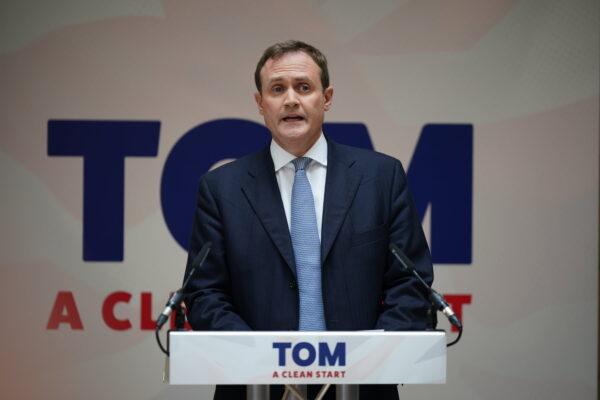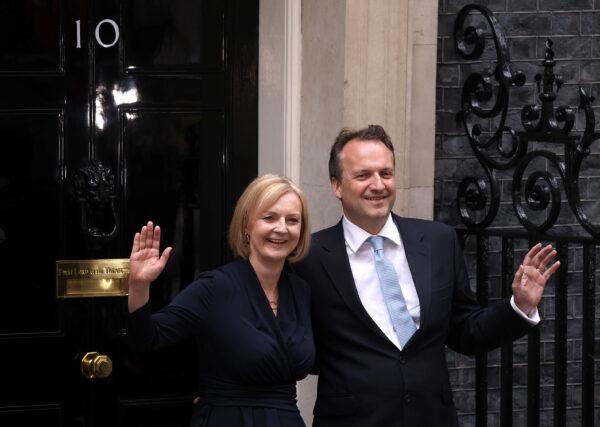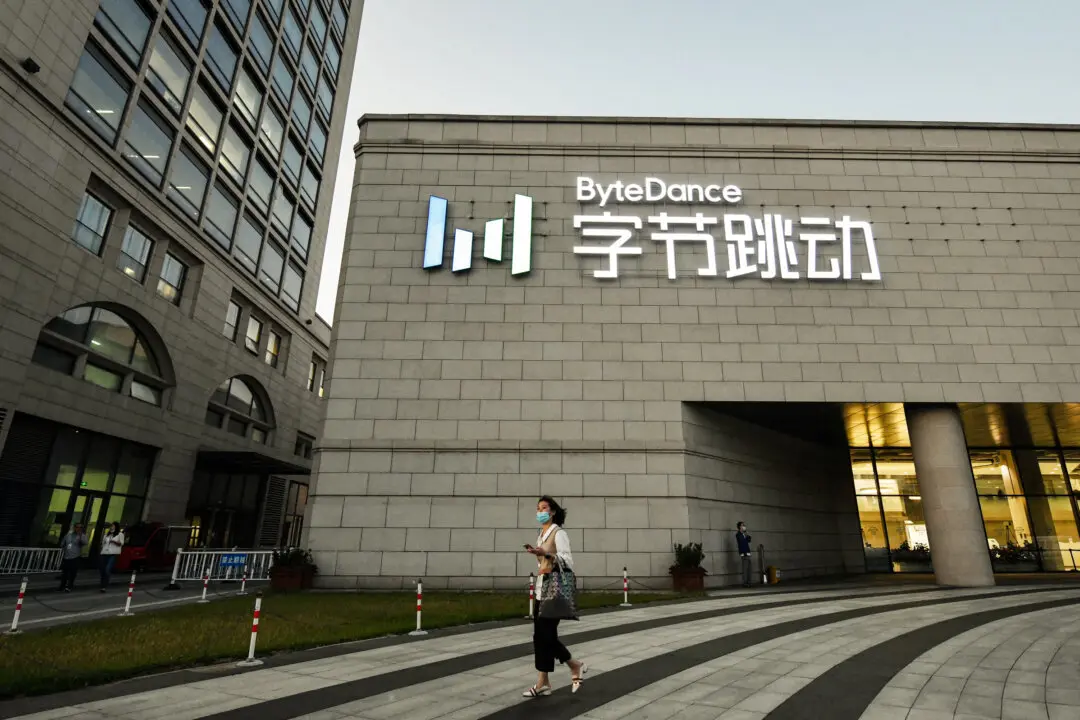New British Prime Minister Liz Truss took office and announced the members of her new cabinet on Sept. 6. Truss is known for her tough stance on China’s ruling Communist Party (CCP), and so are some of the new cabinet members. CCP leader Xi Jinping hasn’t sent congratulations to Truss, while the regime and its media are reacting to the new UK government with skepticism.
In early August, after House Speaker Nancy Pelosi’s (D-Calif.) visit to Taiwan, the CCP held large-scale military exercises around Taiwan, which Truss condemned. She summoned the Chinese ambassador to explain the CCP’s actions.
“We have seen increasingly aggressive behavior and rhetoric from Beijing in recent months, which threaten peace and stability in the region,” Truss said in a statement.
Tom Tugendhat, who was appointed minister for security, is among the new cabinet members who share the same views as Truss. He was sanctioned by the CCP last year for criticizing the regime’s human rights abuses of Uyghurs in the Xinjiang region.
He also founded the British Parliament’s China Research Group and co-chaired the group before taking his ministerial position this month.

Tugendhat opposed the use of Huawei’s 5G technology in the United Kingdom, which led to the strict Huawei exclusion order. He suggested that Chinese students who pose a potential risk to the UK’s national security should be strictly prohibited from entering British universities. He also urged the UK government to hold the CCP accountable for concealing the information about the COVID-19 outbreak.
After the Chinese regime imposed the Hong Kong national security law, Tugendhat called on the British government to further sanction the CCP. After the recent U.N. report on human rights in Xinjiang, he wrote an article for the media saying, “China (CCP) Crimes must never go unanswered.”
Chinese Regime Reacts to Truss
Since Truss became the UK’s new prime minister and formed the new Cabinet, world leaders have officially expressed their congratulations. However, CCP leader Xi Jinping has remained silent. Xinhua, the CCP’s mouthpiece, only reported on Sept. 7 that the regime’s premier Li Keqiang had congratulated Truss.The Chinese Ministry of Foreign Affairs hasn’t sent out any congratulations. Ministry spokesperson Mao Ning only said on Sept. 6 that she hopes relations with Britain will remain “on the right track.”

Truss sees China as a serious threat to the rules-based international order and to the UK’s national security, as reported by Western media. According to reports, she plans to take a tougher stance on China and impose more restrictions on the regime as prime minister.
Chinese State-Controlled Media React to Truss and New Cabinet
Meanwhile, Chinese official media have sneered at Truss and her Cabinet.The Global Times, the CCP’s official media, has called Truss a “radical populist” and said she should drop an “outdated imperial mentality.” Another Global Times article said that Truss urgently needs to repair her “poor popularity internationally,” calling her “a China hawk” and saying that she will be the shortest-serving prime minister.
CCTV, the CCP’s national TV network, said that the new British prime minister is facing considerable domestic and foreign pressure.
China Experts: Truss Will Continue Her Tough Stance on China
Chen Weijian, honorary editor-in-chief of Beijing Spring magazine, told The Epoch Times on Sept. 6 that he believed the reason why Truss won the Conservative Party leadership was that she took a very tough attitude toward China during her tenure as foreign minister, and her support for Ukraine when Russia invaded Ukraine.“Not only in the UK, but also in other Western countries, political parties have recently taken a tough stance in their China policy during election. This has become a global trend,” Chen said.
He acknowledged that some of the politicians changed to a slightly more moderate position toward China after being elected. However, he thinks that Truss’s stance on China will be consistent.
“I believe that after she becomes prime minister, it is very likely that she will continue the same position as when she was foreign minister,” Chen said.
Song Guocheng, a researcher at the Center for International Relations at National Chengchi University in Taiwan, told The Epoch Times that Truss sees the CCP as a threat to British national security, “which means that her future policy toward China will only be tougher, and the trade relationship between China and the UK will gradually weaken as Truss takes office.”
Song added that the CCP poses a threat to the whole world, and individual countries have been unable to change the CCP’s aggressive stance. They can only change their countries’ dependence on the Chinese market by adjusting their own national economic policies.




